Buying Organic and making a better choice, every day!
As we look back on last month’s Organic September campaign run by the British Soil Association, some of us may ask ourselves the question, now what? Unfortunately, buying organic produce for one month a year isn’t effective enough to make a real difference to our health or the health of the planet. It’s going to require a long-term commitment from all of us. Whether you are doing it for your health or the climate, it must be incorporated into our daily lives.
What does “Organic” actually mean?
If we are going to make better choices it is important that we first educate ourselves. So what does organic mean?
For a product to be classified as organic, it must (according to the United Kingdom’s government):
– “follow a strict set of guidelines laid down by national and international law
– keep thorough and accurate records of production processes
– allow annual and random inspections.”
Also, the product has to be certified by an organic control body before it’s labelled as organic.
This means that when it comes to food, everything from how it’s grown, handled, and processed is strictly regulated.
The growers are not permitted to use conventional synthetic pesticides, which are harmful to both humans and the environment. In fact, in the UK they are only allowed to choose from a list of 20 pesticides, which are all derived from natural ingredients such as clove oil and citronella.
According to the British Soil Association research shows that if the UK were to grow all of its food according to organic standards, the use of pesticides would drop 98%!
Certified Organic labels
There are a plethora of different labels that indicate that the food is healthier and more eco friendly than their competitor’s counterpart, but all labels are not created equally. Some labels are simply marketing strategies and are meaningless.
This can include labels such as “all-natural” or “farm-raised”, these labels are not regulated and can pretty much mean nothing. Therefore it is of utmost importance that we know which labels to look for and which ones to avoid.
The following are a few labels that are certified by UK government-approved control bodies.
– Organic certification set out by the European Union
3 Key Reasons to Choose Organic
Organic products are claimed to be a healthier option for us and the environment, but what is it exactly that makes them better than the conventionally grown produce?
Three fundamental differences make them better for our health and the environment.
Positive Effects on Human Health
Studies have shown that not only is the nutritional value higher in organic products, but they are also higher in antioxidant compounds which are linked to better health.
Another factor that is advantageous for our health is the minimized exposure to pesticides. These synthetic chemicals are, depending on sort, linked to illnesses such as cancer, adrenal fatigue, effects on the nervous system, irritation to skin and eyes, etc.
No matter what the regulated limitations are for approved exposure to pesticides, are we going to risk our health?
The Undeniable Positive Effects on the Planet
Because food farming is responsible for approximately one-third of all greenhouse gas emissions, it is only logical and a relief that organic farming practices have the well being of the environment at heart.
For starters, they enhance water and soil quality. Not only that, by using crop rotation and naturally fixing nitrogen in the soil organic farming practices insure that future generations can use the soil to grow their food.
Furthermore, since synthetic pesticides are not used therefore these don’t make their way to our oceans and create “dead zones” which is what happens with conventional farming. Other positive factors are that GMO’s and ionising radiation is forbidden.
Circular Economy
Organic farming practices promote a self-sustaining cycle of resources on a farm while focusing on the long-term wellbeing of our soils and water supplies. By helping to control deforestation organic farming is ensuring that fewer animals lose their natural habitat and thus prevent them from facing extinction. What’s more circular than that?
Coliman Allfresch
Many organic farming practices are also Fairtrade certified, Coliman Allfresch is a prime example of this. It is our ongoing aim to provide sustainability at all stages of the process, that is why we obtained our Fairtrade certification back in 2014.
This means we ensure that not only do we want to do right by the environment but also our farmers.
Our Fairtrade and organic certification mean that we ensure that we protect the ecosystems in Mexico but also that we care about fair wages, labour rights, and the overall wellbeing of our workers. Which is why have successfully launched numerous projects related to education, health, construction, and housing improvements.
The science is clear, we can’t put it off any longer. The time for change is now, and it starts at the grocery store.
Choose organic and Fairtrade every day and make a real difference in your health and the wellbeing of the environment.

